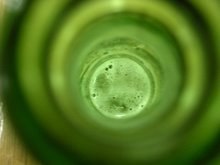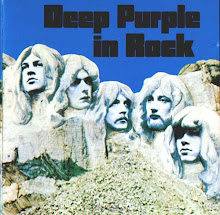A few weeks back, I did a post on here about the enigmatic Russian word razbliuto (in fact, it is non-existent, a pop culture delusion). That had been prompted by a post a little before on my other blog, Froogville, about various unusual words in other languages, and the intriguing concepts associated with them, that I'd discovered in recent online noodlings.
One of the most interesting of my sources for these posts was this item (on the TED website) in which a conference of translators nominated their 21 favourite 'hard to translate' words.
On this list there were, for me, a couple of absolute standouts, words which I'd like to adopt into regular English usage:
sobremesa - the Spanish for the time after a meal spent enjoying conversation with the people you've just eaten with
merak - the Serbian for the enjoyment of simple pleasures like feasting and merrymaking
I am, of course, also fond of the Irish term craic, a somewhat nebulous concept of 'good times' that can be applied simply to entertaining conversation or more broadly to a pleasant evening out... or to improbable drunken adventures. The Irish being the Irish, the pub is most often the context and alcohol and/or music are almost invariably key accompanying elements; but its essence is simply good companionship. However, I learn from Wikipedia that the expression was originally English (or Scots English, anyway?), and only fairly recently adopted into Irish usage (mid-20th century). Moreover, the now common spelling is very new, and an affected Gaelicization; the word was originally just 'crack'. And this spelling is perhaps now even more entrenched in English usage than in Irish, as we have readily convinced ourselves that it is a uniquely Irish word and concept, and thus surely ought to have a Gaelic spelling. Oh well. Print the legend, I say. I think the word has acquired new and distinctively Irish connotations, and the transformation of the spelling is an appropriate reflection of that.






2 comments:
Yes, 'craic' was originally 'crack' as in 'wisecrack,' etc. Worth having it as a distinct word for the sense of "fun/enjoyable events/news," though.
The Chinese word 事儿 "shìr" is almost the opposite -- it means "event," "occurrence," "thing of consequence," etc., but frequently with negative connotations. 出事儿 ("shir emerges") means "something [bad] happened" or "something went wrong;" someone who is bothersome, nagging, or plagued by what Americans call "issues" or "drama" is "事儿多" ("lots of shir") or just plain 事儿. Only when there are no shir (“没事儿") to be seen can people really have a good time.
Very interesting, Weebs.
I assume there are other words of similar meaning, but with neutral or positive connotations.
Or is this a reflection of the pessimism fostered by China's long and miserable history - a (not unreasonable) belief that only bad things can happen.
Post a Comment